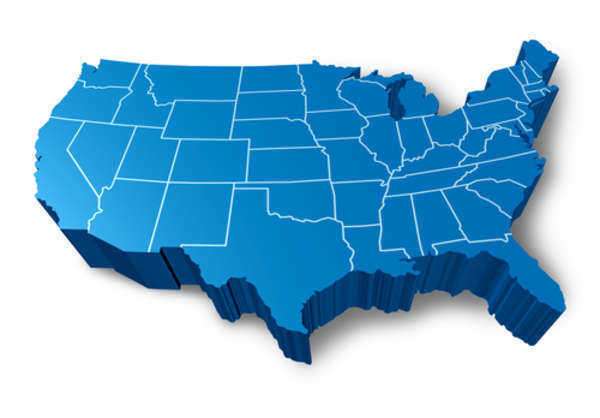Consider these State Exemptions for Bankruptcy
State bankruptcy exemptions vary a great deal by jurisdiction. Bankruptcy exemptions in one state may not permit a petitioner to keep the same property as the bankruptcy exemptions in another state. However, though, the variance in bankruptcy exemptions by state is notable. Generally, they are fairly lenient with the property that they permit a petitioner to keep.
Because bankruptcy in this country exists to provide Americans with a fresh start, the majority of state bankruptcy exemptions will protect most of an individual's personal property. Therefore, an individual who is forced to file for bankruptcy will not need to fear abject poverty.
State bankruptcy exemptions usually permit a petitioner to keep three quarters of their income. Any money or earnings that an individual receives from welfare programs, unemployment compensation, insurance benefits, or pension plans will usually be protected through bankruptcy exemptions by state governments.

A petitioner will be allowed to keep a specified quantity of personal belongings, including jewelry, clothing, books, and tools. Each state outlines the monetary value that a petitioner will be permitted to maintain of each type of item. This value may range a great deal between states.
For example, while the state of Alabama only protects $3,000 worth of personal belongings, New York allows a petitioner to keep up to $5,000 of personal property. Still, the majority of states will exempt the same types of items, including motor vehicles and homes.
There are some important variations to note in bankruptcy exemptions by state. If an individual is married, the majority of states will allow him/her to double the permitted exemptions. Therefore, if state bankruptcy exemptions allow petitioners to keep up to $4,000 worth of personal property, then a married individual may be permitted to keep up to $8,000 in personal property.
However, as there is a great deal of fluctuation in bankruptcy exemptions by state, it is essential to become familiar with one's state's bankruptcy laws. In some instances, the Federal bankruptcy exemptions will be far more beneficial than bankruptcy exemptions by state. Some states will allow a petitioner to decide whether they want to utilize state bankruptcy exemptions or Federal bankruptcy exemptions.
New Jersey, Pennsylvania, Texas, and Connecticut, are just a few of the states that will allow a petitioner to utilize the exemption set that will permit them to keep the most property. States such as New York, Oregon, Missouri, and Kentucky prohibit petitioners from utilizing Federal bankruptcy exemptions and require them to use state bankruptcy exemptions.
The majority of states require a petitioner to adhere to bankruptcy exemptions by state. Therefore, it is important to consider a state's laws regarding bankruptcy exemptions before filing for a Chapter 7 bankruptcy.